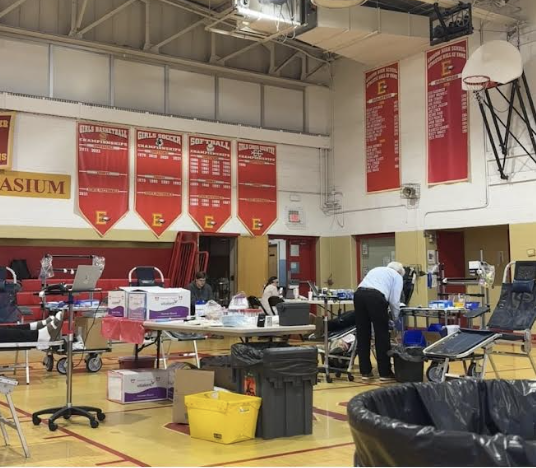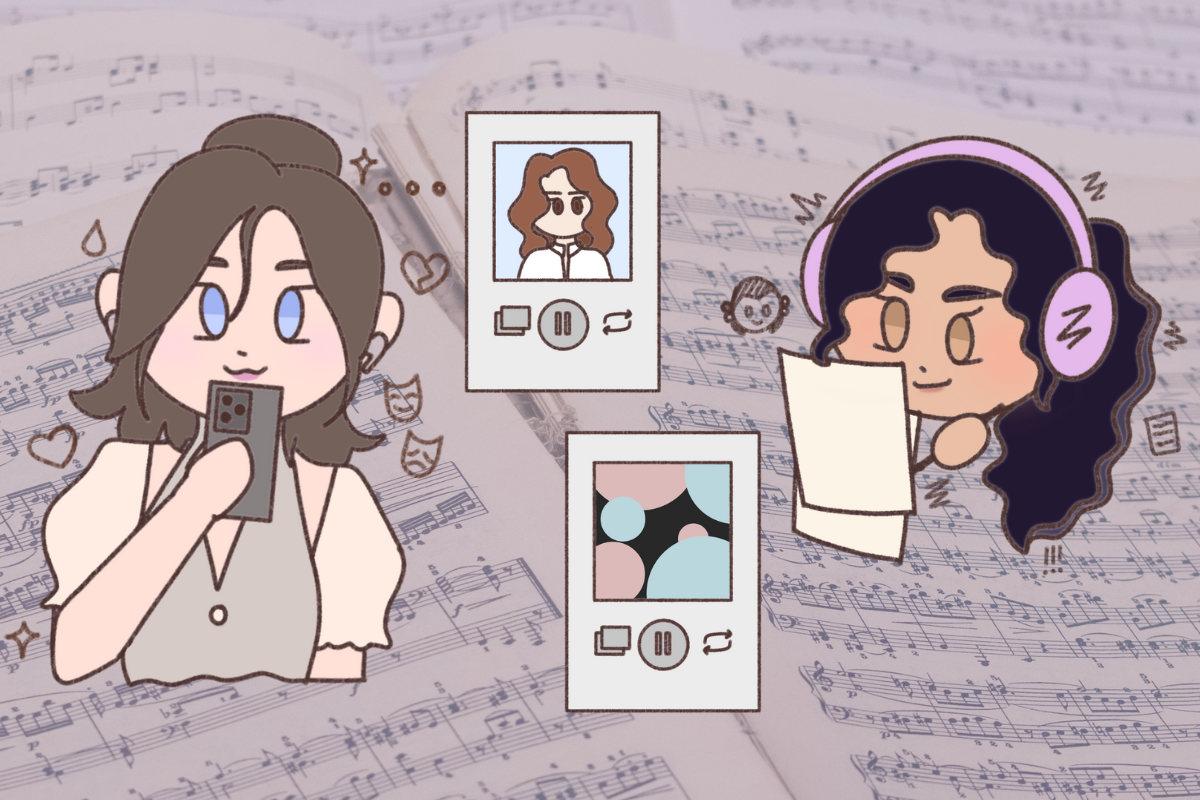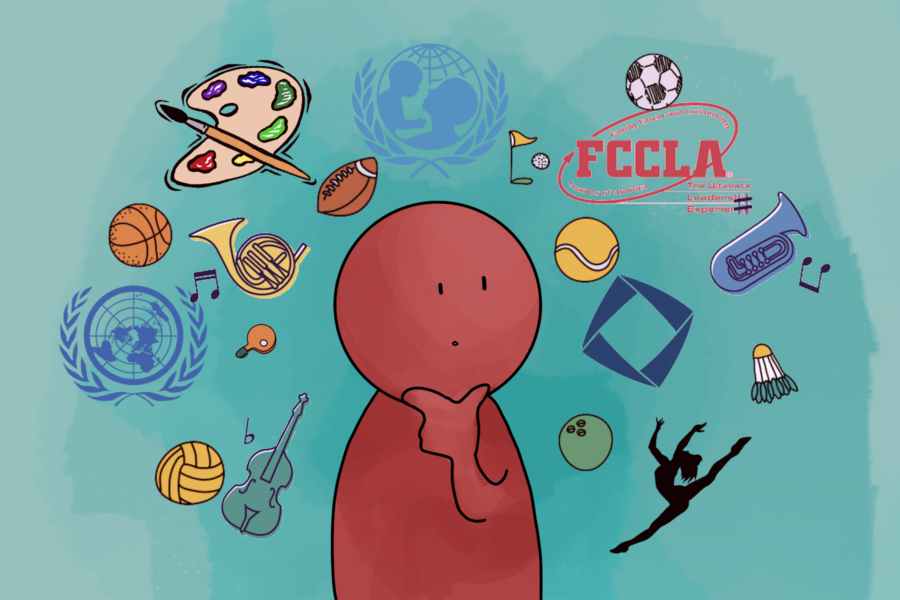Stress or Decompress: Extracurriculars and Mental Health
May 24, 2021
High school is an understandably difficult time in the lives of students. From the struggle to discover their identities to the stress of college decisions, high school is a time when students must learn to balance their home and school lives, and this balance takes practice. Until that balance is achieved, stress can be overwhelming and can lead to an unhealthy lifestyle, both physical and mental.
Established in 1949, National Mental Health Month (in the month of May) was designed to raise awareness of mental health issues and to support those who suffer from mental illness. Mental health is a prevalent issue around the world, and high school is no exception. Here, at Edison High, many outlets are provided for the students to help decompress. Clubs, student government, student organizations, and sports are all meant to allow student creativity: a place to vent, express, talk, dance, sing, and meet new people.
Some students find the whole process of extracurricular activities stressful and overwhelming. Hannah Martin ‘21 said that she used to find all the moving parts of extracurriculars stressful, back when in-person learning was the norm. Attending every meeting, organizing events, or whatever the job is, could be overwhelming for students. But at the same time, these opportunities can be an escape from the stresses of everyday life, whether that be from school, a job, or otherwise. “[Now,] I love doing stuff with clubs [virtually] so I guess that being in a club is great until I have to leave and worry about everything else,” Martin said.
While some students found clubs and student organizations less stressful before COVID, some found other sources of stress to take its place, like drastic changes to education, which often seem to be a priority over extracurriculars.
Students like Sadya Ahmed ‘23 attribute the current stress to a changed learning environment. “[Choir has] been exhausting and hasn’t been the best experience, because learning music virtually is much harder.” Changes in our everyday routines can cause stress, such as relearning how to learn.
But pursuing areas of interest after the school day ends can remedy that new burden. “Participating in student governments has been very positive for my mental health because this year, school has been very stressful and school has affected my mental health but the student government organizations actually help me a lot and they actually allow me to destress, have fun, and engage with fellow peers,” Bryan Budram ‘23 explained.
Agreeing that some of the stress of school can be reduced through these creative outlets, Ahmed said, “Clubs make me feel much better as they provide an environment with people of the same interest. Therefore, it just makes socializing easier and takes away any anxieties I might have.”
Similarly, Isabel Naleppa ‘21 stated that performing groups can cause some stress with their hectic schedules and demanding repertoire, but can also positively affect mental health by providing a fun distraction from stress and pressure: “Because I’m in choir and marching band, there’s a lot of intensity and stress, but it does help alleviate [some of] the pressure of school [since] I have something else to focus on.”
“… I guess that being in a club is great until I have to leave and worry about everything else.”
Hannah Martin ‘21
Club participation has helped students hone their previously acquired skills that were perhaps compromised due to this year’s remote learning environment. This environment has helped some students step out of their comfort zone. “The overall effect [of The Eagle’s Eye] currently has been positive as it allows me to enhance my communication and work to the best of my abilities,”Jayesh Chaurasia ‘23 said. So, while the pandemic has made learning more challenging, it has helped to alleviate some of the stress of socializing and feelings of loss and exclusion.
Not only have clubs provided a practical outlet, but they have been a source of creativity and leisure for a number of students. Sitting on Zoom for more than six hours a day mentally and physically exhausts students. During this time, clubs have proven to be a recreational outlet for many.
Joanne Chen ‘21 said, “FCCLA has helped reinvigorate my passion for sewing, especially at a time when I feel like staying in bed all day.” With club meetings to attend and activities to perform, students have something to look forward to besides being preoccupied with their academics. Nikita Badlani ‘23 agreed, saying that, “[Participating in clubs and organizations] has had a positive effect because it allows me to focus on and pursue my interests rather than just focusing on classes and grades all the time.”
A common theme in students’ responses was that if they focused on an after school activity that they loved participating in and were passionate about, other parts of their lives improved, therefore bringing all the pieces of their life closer to perfect balance.
“Before lacrosse [season] began, I felt very isolated from the rest of my classmates in virtual classes. Once the program started I had so much more motivation for the day ahead, and I loved finishing school and going to practice. The sun and my teammates are very therapeutic,”Alexia Stewart ‘21 said. Stewart, along with other students, agreed that sometimes unwinding oneself, whether it is getting involved with clubs or sports, helps to increase concentration and rejuvenate students.
Anureet Singh ‘21, the co-president of the EHS chapter of UNICEF, said to future students: “Amidst all of the chaos, appreciate being imperfectly perfect, and work for something you’re passionate about because [true] happiness comes from within.”
Cover image drawn by Alyson Zhang ’21.
























































































